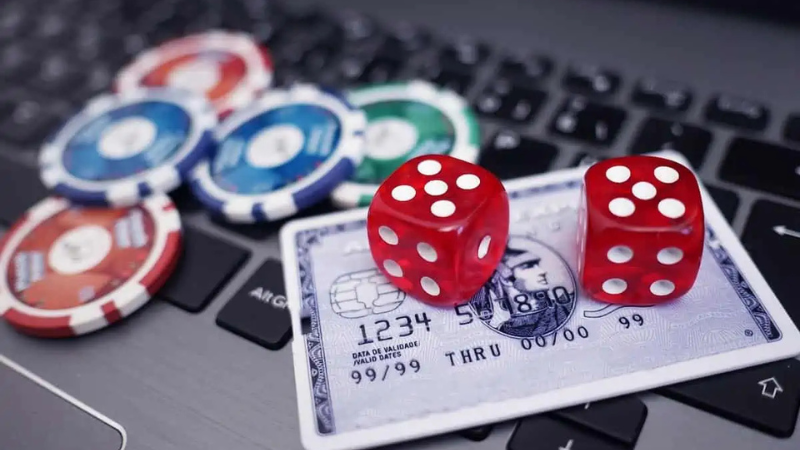Difference Between Licensed and Regulated Casinos
If you’re looking to gamble online in 2025, understanding the difference between licensed and regulated casinos is essential. These terms are often used interchangeably, but they don’t always mean the same thing—and knowing how they differ can help protect your money, personal data, and gaming experience.
This guide explains the key differences between a licensed casino and a regulated one, how to identify each, and what to look for when choosing a safe online gambling site.
What Does It Mean for a Casino to Be Licensed?
A licensed casino has obtained permission from a recognized gambling authority to operate legally. This license allows the casino to offer its services—like slots, table games, or live betting—under certain guidelines established by the licensing body.
Common Licensing Jurisdictions:
- Curacao eGaming
- Malta Gaming Authority (MGA)
- UK Gambling Commission (UKGC)
- Kahnawake Gaming Commission (Canada)
- Gibraltar Regulatory Authority
Licensing Basics:
- The casino pays licensing fees to the authority
- Must meet basic technical and operational requirements
- Can legally accept players in certain regions
What Is a Regulated Casino?
A regulated casino is not only licensed, but also actively monitored by its licensing authority. Regulation goes beyond initial approval—it includes regular audits, player protection standards, complaint handling, and financial accountability.
Regulated casinos follow:
- Strict anti-money laundering (AML) protocols
- Responsible gambling practices
- Fair gaming certification and testing
- Prompt customer dispute resolution
So while all regulated casinos are licensed, not all licensed casinos are truly regulated to a high standard.
Licensed vs. Regulated: Key Differences
| Feature | Licensed Casino | Regulated Casino |
|---|---|---|
| Approval to Operate | Yes | Yes |
| Regular Oversight | Not always | Yes, consistently |
| Player Dispute Resolution | Rare or inconsistent | Mandatory |
| RNG & Game Testing | Sometimes | Required and transparent |
| Responsible Gambling Tools | Optional | Mandatory (cool-offs, limits, self-exclusion) |
Examples of Regulated Licensing Authorities
1. UK Gambling Commission (UKGC)
- One of the strictest regulators in the world
- Heavy penalties for rule-breaking operators
- Player-focused with fast complaint handling
2. Malta Gaming Authority (MGA)
- Strong reputation in EU markets
- Focuses on player safety and transparency
- Publishes licensed operator database
3. Gibraltar Gambling Commissioner
- Primarily B2B and large-scale operators
- Strict financial reporting and fairness standards
Examples of Licensed (But Lightly Regulated) Jurisdictions
1. Curacao eGaming
- Most crypto casinos operate under Curacao
- Fast license approval but limited enforcement
- Regulation is usually up to master license holders
2. Anjouan (Comoros)
- Emerging offshore regulator in 2025
- Still building enforcement structure
- Best for operators seeking fast setup
3. Panama Gaming Authority
- Popular for Latin America markets
- Licensing details rarely public
- Player support channels limited
How to Check if a Casino Is Regulated
- Scroll to the footer of the casino website to see the license info
- Look for regulator’s logo and license number
- Click the link to verify on the regulator’s official website
- Search the regulator’s database to confirm if the license is active
If the license link is broken, unverifiable, or missing—it’s a red flag.
Why It Matters for Players
1. Payment Security
Regulated casinos must keep player funds separate from business accounts. This ensures your money is safe even if the casino goes bankrupt.
2. Fair Games
Regulated casinos use games tested by certified labs (like iTech Labs or eCOGRA) to ensure fair RNGs and payout percentages.
3. Data Protection
Regulators require casinos to use encryption and protect user information under privacy laws.
4. Responsible Gambling
Top regulators mandate tools like deposit limits, cool-off periods, and self-exclusion features to help players stay in control.
5. Dispute Resolution
When issues arise, regulated casinos are required to respond. Regulators act as neutral third parties in conflicts between players and operators.
Conclusion
When choosing where to play online, the words “licensed” and “regulated” shouldn’t be taken at face value. While a license allows a casino to operate legally, a regulated casino goes a step further—ensuring that you, the player, are protected at every level.
Want the safest gambling experience in 2025? Choose a platform regulated by authorities like the UKGC, MGA, or Gibraltar. And always verify the license before you deposit.

Leave a Reply